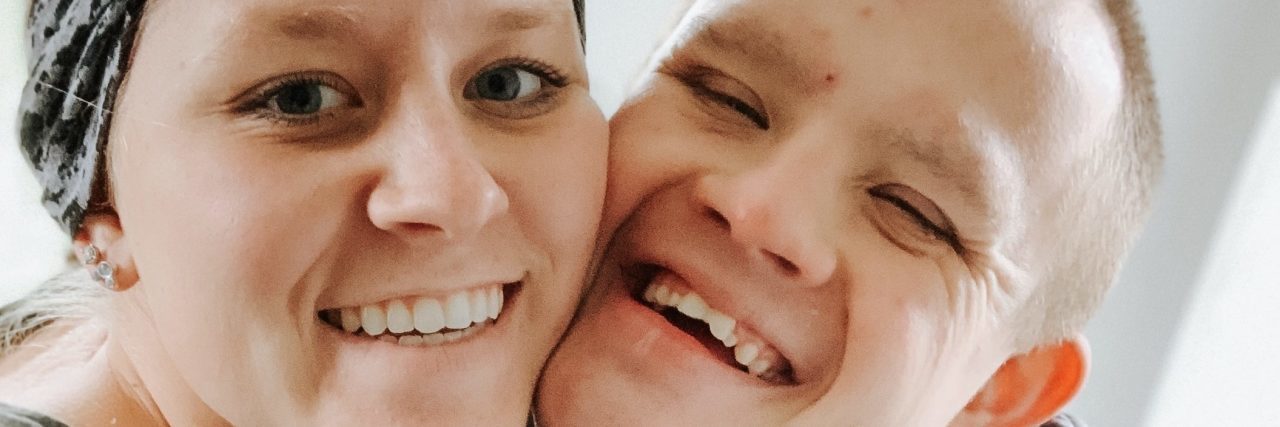After reading that title, you’re probably very confused. In a world that is bent on acceptance, any motion away from that ideal may seem concerning. But I think we may be confusing the ideal of tolerance with the promise of love, and my brother has been teaching me that tolerance, though appearing conducive to all, can create major problems.
My younger brother has Down syndrome, and with his presence in my life, I do not accept many things I see others let breeze by them — people’s choice of language, flippant racist remarks, personal indulgences. People will argue compassion for the persecutor; people will profess that it isn’t a big deal. Accept it and move on, they say.
My brother has taught me that when we “accept and move on,” when we tolerate what we know to be wrong, we are perpetuating the belief that those who are wronged most often are deserving of it. We are encouraging further marginalization of already vulnerable people and groups.
My brother deserves the world, simply because his presence within it is so pure and wholesome, it makes everyone else better. Many people in our world do not agree. And this shows up in our laws, in our statements, in our abortion rates and in our attitudes. We need to be less accepting — of this and of the actions that got us to this place.
My brother, through his presence in my life, has taught me three lessons regarding acceptance:
1. Some things and most people are worth fighting for, even if doing so gets in the way of another’s feelings, politics or prejudices.
Humans often don’t like criticism; we take offense easily. We want to be in control, call our own shots and do what makes us feel good. Here’s the thing — some people’s words and behaviors are inexcusable. What makes some people feel good and in control can put oneself or others in harm’s way, perpetuate another’s vulnerability or create dangerous assumptions.
My brother has shown me time and time again that he is worth fighting for. He is worth more than a shrug of the shoulders, an “it makes them happy,” or a “you don’t know what that person is going through” response to mockery or exploitation. Whatever the reason may be, the action is unacceptable. The narrative that exists for individuals with disabilities places them in an extremely vulnerable position, where they look incapable and are treated accordingly. Those who perpetuate this narrative are standing in the way of my fight, and their feelings, politics and prejudices are a small price to pay in the pursuit of justice for my brother and those like him.
2. There is a vital difference between acceptance and love.
My brother has taught me there is good and evil in the world. And it is his goodness which has enabled me to recognize the evil that exists around us. People have attacked my brother and people like him because they are seen as easy targets. Vulnerability is a beautiful thing, but when it is tainted by another’s perverse need for something, it is a scary place to dwell. And yet, many people cannot help dwelling there.
There are people who use and abuse individuals with disabilities all around our world. I met a woman in China who was raped relentlessly by those who were supposed to be her caretakers, all because she couldn’t run away or tell them to stop. I watched a man on Instagram exploiting children with Down syndrome for his own personal pleasure. I watched another woman’s disabled child being ridiculed and threatened on social media because of her child’s appearance. When these things happen, there are generally large groups of people who take up metaphorical arms to fight the injustice, to call out the wrong. Some people fight fire with fire, which is often ineffective. Others are fiercely instructive and gracious. And still others are calling out the justice fighters for not being loving enough.
Remember, love doesn’t grant permission for wrongdoing — acceptance does. And love is what we want. Love doesn’t excuse the “r-word.” Love doesn’t allow employers to pay individuals with disabilities less than minimum wage. Love doesn’t pretend it’s OK to handle students from a trauma background with no sense of trauma-informed practice. Love stands to fight against the wrong, the evil, the unjust; acceptance says it’s not ideal, but it’s OK. By being the most innately loving and good person I know, my brother has reminded me that love does not seek to appease people but to make them better, to call them higher.
3. Compassion without action is empty.
And sometimes the most compassionate thing one can do is graciously correct and call out. We can be gentle and kind, full of the best intentions, but until we take boots-on-the-ground action to right a wrong, our compassion falls short of its full potential. I will not sit idly by while injustice takes place for fear of stirring the pot, stepping on toes or hurting someone else’s feelings. Because chances are, someone’s feelings are going to be hurt regardless, and it darn sure isn’t going to be my brother’s. He’s been at the bottom of the totem pole for far too long already, and I do not accept that is where he belongs. Compassion is where it begins, but it is not where it ends. Compassion, when combined with passion, is where change is formed and where justice is found.
I’m grateful to my brother for teaching me the dangers of acceptance and the importance of love. May we all stand against what we know to be wrong and move toward justice for everyone.

